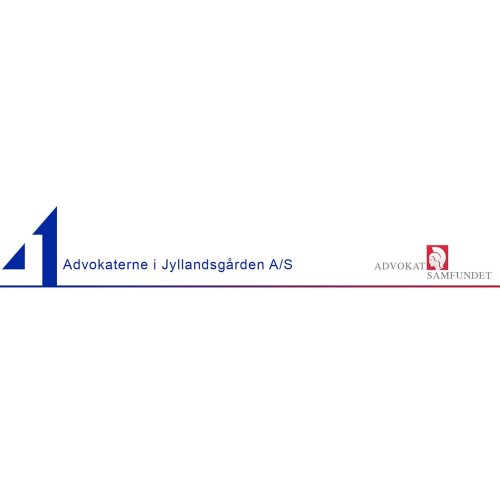Best Employer Lawyers in Aarhus C
Share your needs with us, get contacted by law firms.
Free. Takes 2 min.
List of the best lawyers in Aarhus C, Denmark
About Employer Law in Aarhus C, Denmark
Employment law in Aarhus C, Denmark, protects both employers and employees in a work relationship. All aspects of employment including hiring, workplace conditions, dismissal, discrimination, and trade unions are addressed in Danish labor law. Employer law is primarily focused on the rights, obligations, and legal protection for employers. There are a host of rules and regulations in Denmark which include collective agreement rights, sickness benefits, maternity and paternity leave rights, holiday leave and pay, working hours, work environment, and the legitimacy of termination.
Why You May Need a Lawyer
Even though labor laws in Denmark are quite comprehensive and protective, legal disputes between employers and employees can arise. You may need a lawyer to understand and interpret rules and other legal aspects related to employment. Legal guidance is advantageous when dealing with complex issues such as contract drafting, conflict resolution, cases of discrimination, wrongful termination, and matters regarding salary and working conditions.
Local Laws Overview
Specific to Denmark, all employers, regardless of industry, are obligated to provide a legally sound employment contract. The Working Environment Act is a key law in Denmark aimed at ensuring a safe, healthy, and development-oriented work environment. Employers must also adhere to the Holiday Act which guarantees employees a certain number of days off annually. In terms of termination, employers must follow proper procedures with notice periods depending on the length of employment.
Frequently Asked Questions
Q1: What are the standard working hours in Denmark?
In general, the standard working week in Denmark is 37 hours, spread over five days. However, this can vary depending on your specific employment contract and the industry in which you work.
Q2: Is it obligatory to provide a written employment contract in Denmark?
Yes, it is obligatory to provide an employment contract. As per Danish law, an employer is obligated to provide a well-defined employment contract within one month of commencement of employment.
Q3: How does the holiday leave system work in Denmark?
Holiday Act in Denmark states that employees are entitled to 25 days of annual leave. Employees accrue 2.08 days of holiday for every month of employment.
Q4: What is the notice period for termination in Denmark?
The notice period can vary depending on the length of employment. For employment under three months, the notice period is 1 month, and for employment more than 3 months, it is three months.
Q5: Are trade unions legal in Denmark?
Yes, trade unions are legal in Denmark. Employees have the right to join or form trade unions, and employers have the right to join employer associations.
Additional Resources
The Danish Working Environment Authority and Danish Ministry of Employment are key governmental bodies that regulate employer law. Websites like Legal Guide Denmark and LawFirm are valuable resources to know details and get online assistance about Danish law.
Next Steps
If you believe that you need legal assistance, the first step is to find a lawyer who specialises in employer law in Denmark. It is recommended that you prepare for your meetings by compiling all necessary documents and summarising your case. Stay proactive in your communication and don’t hesitate to ask questions to ensure you understand every aspect of your case.
Lawzana helps you find the best lawyers and law firms in Aarhus C through a curated and pre-screened list of qualified legal professionals. Our platform offers rankings and detailed profiles of attorneys and law firms, allowing you to compare based on practice areas, including Employer, experience, and client feedback.
Each profile includes a description of the firm's areas of practice, client reviews, team members and partners, year of establishment, spoken languages, office locations, contact information, social media presence, and any published articles or resources. Most firms on our platform speak English and are experienced in both local and international legal matters.
Get a quote from top-rated law firms in Aarhus C, Denmark — quickly, securely, and without unnecessary hassle.
Disclaimer:
The information provided on this page is for general informational purposes only and does not constitute legal advice. While we strive to ensure the accuracy and relevance of the content, legal information may change over time, and interpretations of the law can vary. You should always consult with a qualified legal professional for advice specific to your situation.
We disclaim all liability for actions taken or not taken based on the content of this page. If you believe any information is incorrect or outdated, please contact us, and we will review and update it where appropriate.

















